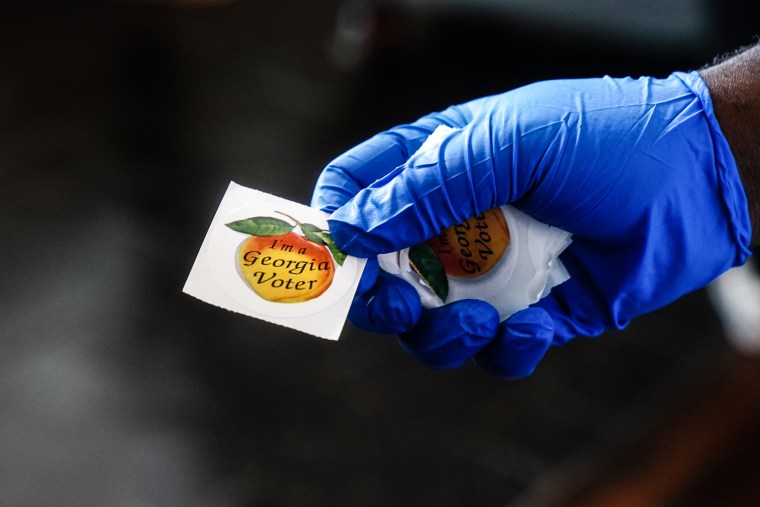A group that fights the spread of misinformation and disinformation among Black and brown voters is gearing up for the 2022 midterm elections with a new, multi-million-dollar effort to mobilize and engage voters of color at risk of staying home this fall.
The group, Win Black, is planning on spending about $3.5 million on a new campaign focused on digital ads, a social media push and online mobilization and engagement efforts it says are designed to help motivate voters of color — who may have been targeted with misinformation aimed at convincing them their vote won’t count or matter — to turn out.
“We’re still worried about losing folks who might have voted due to the misinfo environment,” said Andre Banks, the group’s founder, who shared news of group’s efforts this cycle with NBC News first.
“In 2020, there was such a focus on mis- and disinformation because it was still new, but in 2022, my biggest fear is that people think it’s gone away, when actually what we’ve seen is that it’s actually just evolving and become a more powerful force, especially efforts targeting the BIPOC community,” Banks added.
Win Black ads and efforts will target voters in crucial swing states like Michigan, Georgia and North Carolina — “to further boost the strong organizing work already happening” — as well as in states like Louisiana and Arkansas, where the group “sees a need to re-energize activists and voters” Banks said.
Banks says the operation, a 501(c)(4) nonprofit, isn’t designed to align with Democratic Party efforts — “we are focused on the democratic process not the Democratic Party,” he said. However, Black voters represent a key Democratic constituency and success by the party this November could hinge on an ability to aggressively turn out Black voters.
Banks explained that voters of color are increasingly confronted with online content, centered on issues like criminal justice or health care, that draw readers in by appearing as if it’s designed to inform.
“But these these pieces of content make a sharp turn, saying something like, ‘and that’s because this party or this organization has never supported Black people and that’s why black people should opt out of the system,” he explained. “Our effort is specifically designed to engage voters who are affected by that kind of content and make sure they don’t [opt out of the system].”

